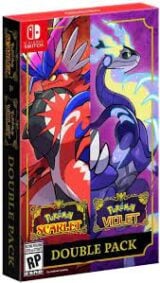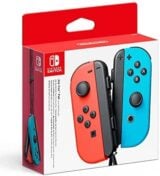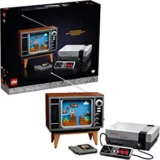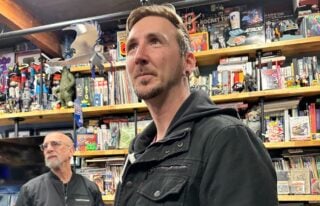Inti Creates: ‘I worry for Japanese indies on console’
Mega Man Zero studio discusses the state of the Japanese dev scene

Takuya Aizu is concerned about the future of Japanese indie developers on console.
With mobile games increasingly dominating the Japanese market – players in the region are estimated to spend more on smartphone games than anywhere else in the world – the Inti Creates president sees a real possibility that persisting in the console space could become untenable for smaller studios like his.
“For a company like us, who focuses all our efforts on console and PC games, you could sit by and watch your market become smaller and smaller as people abandon console for mobile,” he said.
Luckily for Inti, it has a cult following of fans in North America and Europe, fond of its long legacy of retro-inspired action games such as Mega Man Zero, Azure Striker Gunvolt and Bloodstained: Curse of the Moon
VGC met with Aizu-san at Inti Creates’ Chiba, Japan headquarters to discuss the state of the Japanese independent dev scene.
Inti Creates is one of the most successful independent game developers in Japan. In the past you’ve attributed that success to a focus on global trends. What are the most recent global game trends that have guided your approach?
Trends can deviate territory by territory around the world. At Inti Creates we’re focusing on three territories; America, UK and China. The reason that we’re focusing on these territories is because they’re more ‘indie-friendly’ countries with players who are open to trying new titles. That’s why we’ve chosen to target them specifically.
There’s a boom in the indie space right now, but to be honest I’m not sure how long it is going to last. Thankfully, Inti Creates already has a steady fanbase that loves and supports our content. They’re fans of the sort of old-style, retro games made in a Japanese style. That’s obviously a very positive thing that we have that support from our fans.
What would you say are the biggest challenges facing developers like yourselves today?
One of the things that we’re seeing is that the amount of money it takes to create a ‘triple-A’ game keeps growing and growing and that’s why you have a lot of independent developers now filling the gaps. For us, we’re not a big, triple-A developer but we’re not a two-person operation either. We try to make our games to fit within our budget and compete with bigger games as best we can, but obviously we can’t spend millions and millions of dollars.
“For a company like us, who focuses all our efforts on console and PC games, you could sit by and watch your market become smaller and smaller as people abandon console for mobile.”
The other thing is that with the growing popularity of mobile games here in Japan, you increasingly see a lot of game developers focusing only on those platforms. Even companies that used to make console games are now focusing entirely on mobile games. There are a few who have moved from mobile to console too, so it’s kind of hard to determine what the balance is, but there’s definitely the possibility that the number of console-based Japanese indie companies will become smaller as time goes on.
That’s something that I’m kind of concerned about. Because if you have fewer companies creating console games then the customer base will also become smaller on those platforms. For a company like us, who focuses all our efforts on console and PC games, you could sit by and watch your market become smaller and smaller as people abandon console for mobile. In North America and Europe, I’m not really too worried about that happening, but for the Asian market it’s definitely a big concern.
With the sheer amount of independent games on the market now, is it becoming difficult for creators of smaller games to find an audience?
Yes. Right now, for a small indie developer trying to make their debut and carve out their space in the market, I think it’s harder than it’s ever been and it’s probably going to get even harder.
After we first decided to publish our own games back in 2013, we released Azure Striker Gunvolt in 2014 and even then the landscape of Steam was very different than what it is now, even five years later. We were making games for Nintendo 3DS and there weren’t that many indie games. Even when the Switch first came out, there honestly weren’t that many. Now, even two years later, it’s completely different. The Switch has tons of indie games, as does Steam. So it’s a lot harder now to stand out than it was.
It’s hard for me personally to offer advice on what modern independent developers should do, because we kind of got into the scene when there were a lot fewer games out there to compete with. We had that advantage, because people were able to find out about us when the indie games market was a lot smaller.
Now with it being so big, I would say probably the best thing you can do as an up and coming indie company is stay in contact and work with platform holders the best you can. I think that’s probably the best chance that you have of getting any kind of traction with your game. Nobody understands what their audience wants better than they do.
“Even when the Switch first came out, there honestly weren’t that many [indie games]. Now, even two years later, it’s completely different.”
As you work with them, you can get an idea of what their audiences are looking for and take that into account as you create your game. You may get to the point where they see you creating the exact experience that their audience is looking for and that then may open the chance of getting first-party promotional support. If one of the big companies is pushing your game, that’s a whole new world.
Inti Creates has lots of experience of working with licenses such as Naruto, Mega Man and more recently Bloodstained. What are the challenges of working on another company’s IP?
One of the things you have to realise is that us being a Japanese company, it makes it a lot easier to work with the Japan-based license creators that we have done in the past. That’s a major advantage that we have. In addition, I think a lot of our collaborations have been facilitated in some way, if not arranged by, the platform holders. They may tell us that a company is interested in working with us and then we take it from there.
So again, we’re seeing a lot of advantage from having a strong relationship with the platform holders. For example, we’ve had Shovel Knight in two of our games thanks to an introduction facilitated by Nintendo of America. I also participated in a meeting at E3 between Sunsoft and Nintendo and by complete chance of being in this meeting, that’s how Blaster Master Zero came to be. So for us, it all comes back to working with those first-party companies.

And then of course we have the other side where we were working directly with creators Koji Igarashi for Bloodstained and Keiji Inafune for Mighty No. 9. Working as a partner with those guys has helped make their Kickstarter projects successful, so they’ve let us use their IPs in return for our own projects.
As you mentioned, you are in the unique position of having worked on several high-profile Kickstarter projects. What was your experience of working on those games, especially with the various commitments you had to comply to in terms of features promised to backers?
Of course both of the Kickstarter games we worked on were not our projects, but they were our clients. They hired us as a development partner, so we didn’t have any input in terms of promising features or anything like that. It was more like, ‘hey, we promised X, Y and Z… how much is that going to cost to develop?’
I suppose one of the areas that it differs from normal development is that usually when a company hires you for development, you work for quite a long while before you present anything to the players. But with a Kickstarter project, there are eyes on the development process at all times. That is very different from the way we usually make games and it was a challenge.
“[Usually] when a company hires you for development, you work for quite a long while before you present anything to the players. But with a Kickstarter project, there are eyes on the development process at all times”
I would definitely say one of the toughest parts was quality management. Usually when you present a game, people are seeing it at 100%. But with something like this, you might be showing something at 60% polished, then 80% polished, then 100%. The reactions that people get when they see that sort of iterative improvement are very different. People perceive the quality change very differently when they’re seeing it bit by bit, as opposed to seeing it at 60% and then 100% done.
What advice would you give to developers considering high-profile Kickstarters?
If you’re going to promote a game on Kickstarter, one piece of advice would be that instead of casting a wide, but shallow net, you should cast a thinner but deeper net. In other words, keep your ambitions more focused and try to drive one or two things to be super high quality, as opposed to trying to do all this other stuff. Igarashi-san could probably give your deeper advice than I could!
Last year you said you’d love to work on a remake of Nintendo’s Zelda II. Since then the Link’s Awakening revamp has been revealed, so does that bring your ambitions a step closer?
I don’t really think it’s made an impact! I just happen to really like Zelda II and when asked, I said that would be my dream remake. It’s not like some super, grand ambition of anything like that. Obviously there are a lot of hurdles to make those sorts of games, but in a perfect world we could easily do that here at Inti Creates if Nintendo let us. It would be cool!
On the subject of Nintendo, the Switch has resonated well with players around the world but especially so here in Japan. Why is that?
It’s a pretty simple reason, I think. You have a bunch of fans of Nintendo’s home consoles, from NES up until Wii U, and then you have this whole section of other people who are fans of portables, from Game Boy until 3DS. What the Switch does for the first time ever is combine those giant fanbases into one. So it’s pretty simple, really! That’s why it’s selling so well.
And Sony and Microsoft are now gearing up to release new hardware. Do you think the market is ready for new consoles at this point?
I think it might be pretty tough because at this point in time exclusivity is dying. There are a lot of games coming out on multiple platforms and even if they don’t at first, they get ported to other platforms later on. So when these companies put out new consoles I think one of the most important things for them is going to be how many exclusives they can have at their launch, because if they don’t have those then the chance that they’re going to have a failed launch is going to be pretty high I think.
The other thing that will determine the new consoles’ fate is the precedent that Nintendo Switch set; it does something new that no system can or has done. So whatever these new systems are, they’re going to need to offer an experience that you can only have by owning it. I think that, especially with the precedent that Nintendo Switch has set, that uniqueness is more important than ever now.
I think when it comes to portability, Switch has cornered that space. I think the only console that needs that portability to succeed is a potential Switch successor. If another company comes out with their own portable hybrid, then they’re not going to be able to compete with whatever Nintendo puts out next, because they’ve established this massive base.
Whatever the new systems are, they’re not going to be able to just copy Nintendo. They’ll need something else to set them apart. If I knew exactly what that something was, I’d go and sell it to Sony or Microsoft!






















